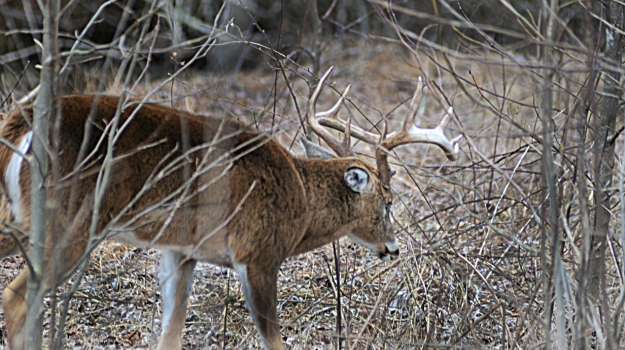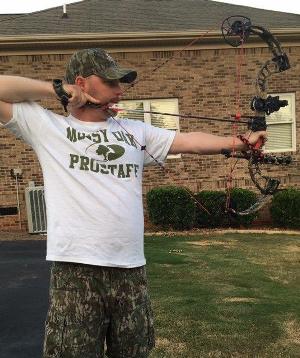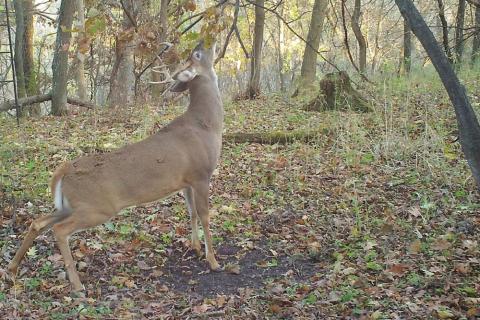
One of the secrets for consistently taking deer is being able to hunt as much as you can. That’s why I identify and get permission to hunt small properties close to my home. Often those are small tracts of land surrounded by subdivisions that are overlooked by most hunters. On most of these lands, you only can bow hunt. However, because these properties are so close to my house that I can hunt before I go to work for an hour or 2, and during the early season, I can hunt for an hour or longer before the sun goes down. I can hunt the prime movement times and still not miss work. All these properties and subdivisions are located in the county where hunting’s permitted and not in the city. Another advantage of hunting these types of lands is they’re not big enough for landowners to lease. More than likely no one’s asked for permission to hunt there; and often when I ask to hunt one of these small woodlots, I can hunt there for free.
 A disadvantage of hunting these small tracts is they may get sold before you can hunt them. I had one really-nice 5-acre tract I got permission to hunt, but before hunting season arrived that property was sold. Also, because these tracts are usually close to subdivisions, I had trail cameras stolen - another reason I don’t put trail cameras on small properties. Too, I like to hunt small properties close to home due to the price of hunting leases in Georgia sky rocketing - especially in areas where there’s not much land to lease. I look for land that most people never will consider leasing to hunt. I’ve learned that I can find more places to hunt on small tracts just by asking permission than I can on large tracts of land. Because I live close to a lot of these properties, oftentimes I’ll know the people who own these tracts of land, and I can ask them if I can hunt those properties. Generally they will give me written permission to hunt that land.
A disadvantage of hunting these small tracts is they may get sold before you can hunt them. I had one really-nice 5-acre tract I got permission to hunt, but before hunting season arrived that property was sold. Also, because these tracts are usually close to subdivisions, I had trail cameras stolen - another reason I don’t put trail cameras on small properties. Too, I like to hunt small properties close to home due to the price of hunting leases in Georgia sky rocketing - especially in areas where there’s not much land to lease. I look for land that most people never will consider leasing to hunt. I’ve learned that I can find more places to hunt on small tracts just by asking permission than I can on large tracts of land. Because I live close to a lot of these properties, oftentimes I’ll know the people who own these tracts of land, and I can ask them if I can hunt those properties. Generally they will give me written permission to hunt that land.
Having written permission is a real big advantage for hunting small properties, especially close to subdivisions. In Georgia, as well as many other states in the South, hunters are required to have written permission to hunt private lands. So, if someone sees me in a tree stand and walks into where I’m hunting and says, “You can’t hunt here,” I can show them my written permission. I’ll also ask them if they have permission to trespass on this private property. So, that written permission solves a problem I may have with nosey neighbors. Anytime I get written permission to hunt a property, I make it a point to leave that property in better condition than I find it. I pick up paper, I let the landowner know about any concerns he may have about livestock on that property, and I treat that land as though I own it. By following this practice, I have several prime pieces of land that I’ve been able to hunt for several years.



























